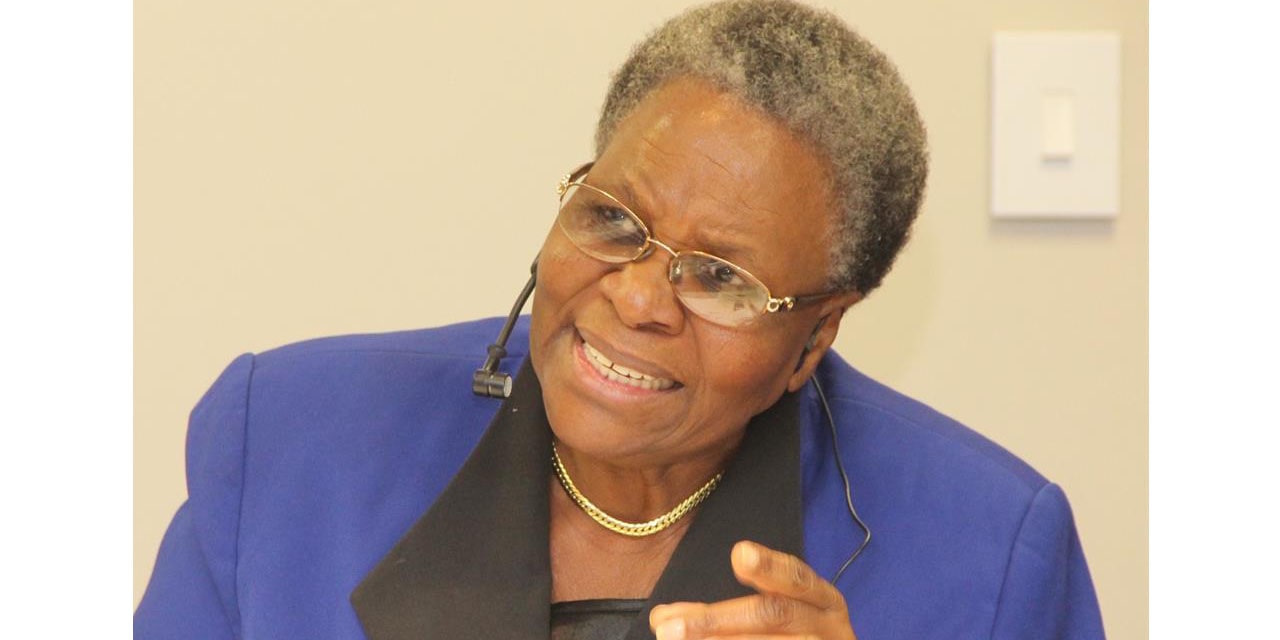Martin Endjala
Subsistence farmers have been urged to move away from traditional farming and produce surplus for both local and international markets to ensure food security for both their families and the country.
This was said by the Minister of International Relations and Cooperation, Netumbo Nandi-Ndaitwah during the 16th Theo Ben Gurirab lecture series at Nkurenkuru in the Kavango West Region.
She said farmers should take advantage of the Extensive Agricultural Mechanisation and Seed Improvement Project rolled out by government to achieve structural transformation of increased food production through value addition.
‘’ I am informed that this particular project is also being implemented in the Kavango West Region and it is high time that our small holder farmers, especially substance farmers, take advantage of these low hanging fruits to improve food security in the region and to gradually move from substance farming to farming for the market both locally and internationally. I am equally informed that pearl millet, sorghum, tomatoes, maize and beans, onion, green pepper, spinach are some of the produce with great potential to be produced in the Kavango West region in the crop production sector,’’ the minister urged the farmers.
The theme of this year’s series is Contribution of Subsistence Farming to Food Security in Namibia.
Ndaitwah emphasized that agriculture is the one of the main sectors that provides raw materials to industries and can employ a large segment of the population.
“Even the clothes that we are wearing is made from cotton of which undergoes through various
processes till it becomes a finished good,” Ndaitwah said.
The MIRCO minister stressed that the region has the potential to enhance its productivity given its geographical location.
The lower hanging fruit for the Kavango West Region, Ndaitwah said, is agriculture – ‘’you have all that is required to make agriculture a business’’.
‘’The land is fertile, water is available and most importantly labour force is there. What is required is just a push to develop further the human capital. Once the knowledge and appropriate skill is available challenges related to capital could be addressed,’’ the minister pledged.
She called on farming communities to increase productivity of subsistence agriculture by encourage farmers to pursue sustainable growth of production through the use of improved input, fertilizer and agricultural implements.
‘’ An increase in subsistence farming and food production has the potential to improve the food security of poor households in both rural and urban areas by increasing food supply, thus reduce the price of food. Remember the principle of ‘the demand and supply’“.
She further said she is encouraged to see that the youth have taken an interest in agriculture and the government will create a supportive environment for them.
Maxwell Nghindinwa, the acting manager of the Sikondo Green Scheme Irrigation Project, pointed out that food security is sustainable with the right mechanisms put in place.
Nghindinwa said production intensification by maximizing on the natural resources is one of the
few elements farmers need to consider. He further highlighted that lack of specialization is one of the reasons subsistence farmers are not successful.
“Some farmers have become a jack of all trades, they want to try everything. But imagine if you focus on producing one thing every season the amount of knowledge and expertise you will gain. You will become an expert in that field,” Nghindinwa echoed.
He advised farmers to diversify by incorporating crops and livestock that best complement one another.
“Agriculture is the only sector that can accommodate all sort of skills”, Nghindinwa said.
Romanus Kawana from the Public Enterprises Ministry said that in order to develop a nation
you need food security, while underlining some of the poor performances in schools by some pupils is due to hunger.
Kawana further called on Namibians to stop crucifying the government for not doing enough and to start finding ways to support government to implement initiatives that can best serve the people.




